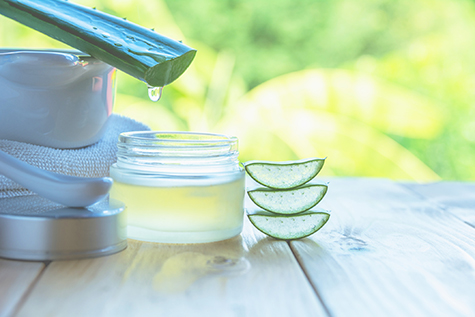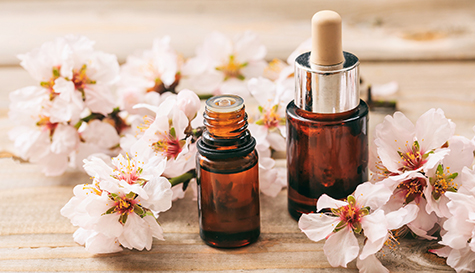Keep Your Skin Healthy Using Natural Oils

It’s getting colder in many parts of North America now and many people may start to be bothered by “winter itch”, that dry , flaky, reddened skin condition that may occur when heated homes become dry. Even if you live in a warmer climate, you could be like some of my patients who experience oilier, break-out prone skin, especially if you perspire more often.
Whichever your skin condition is, you don’t have to put up with the flaky itchiness or embarrassing break outs. I’d like to share with you what I tell my own patients about making the most of your own natural skin oils and other natural food and plant oils to keep your skin comfortable and beautifully healthy all year round.
Use Natural Oils to Stay Comfortable in Your Skin
Like many of my patients, you may not realize that your skin is the largest organ of your entire body. It performs a number of tasks to keep the rest of you healthy like filtering out toxins and keeping you warm. As such, we need to keep our skin clean to remove the toxins that are released everyday in our sweat.
However, when we take a shower or bath, especially in winter, the use of drying, commercial soaps may cause us to lose much of the natural oils that our skin possesses. Further, you may do what many of my patients do and that is add processed chemical moisturizers to your skin which can serve to dry, irritate, and inflame it even more.
 Still another cause for dry skin can be our diets – dehydration and lack of eating natural oils can add to skin woes. This can wind up with skin that is dry and uncomfortable.
Still another cause for dry skin can be our diets – dehydration and lack of eating natural oils can add to skin woes. This can wind up with skin that is dry and uncomfortable.
However, keeping your skin looking and feeling great can usually be a matter of what you put in your body and on your skin. Here are some recommendations I give my own patients regarding good skin care based on natural oils.
- Wash with a natural oils-based soap – like olive, coconut, or walnut oil – especially in cold winter climates, but also good for hot, sunny environments too. They won’t strip the natural oils from skin while bathing and they also add protective natural emollients to the surface of your skin.
- Be sure to exfoliate your skin when you wash using a good, natural-based product. Even table sugar works well and leaves a smooth, shiny surface (just don’t eat it! High sugar diets cause skin to age drastically). Exfoliation helps normalize both dry and oily skin conditions. Rinse well and then apply moisturizer according to what skin type you have.
- For dry skin: Use only natural, food based carrier oil moisturizers on your skin (see more below). These have antioxidant and anti-inflammatory properties to help normalize skin types. Take 1/8th cup virgin olive, or walnut, macadamia, almond, or other nut oil, or jojoba bean oil, and mix with 1-tablespoon coconut oil and 2 tablespoons aloe vera. Break a vitamin E capsule into it, or add 1 tsp of pure honey, or even whole milk or cream to it, and use on your face, hands, forearms including elbows, and neck that tend to be the driest.
Avocado mashed with olive oil and applied to your face once a week after exfoliating moisturizes and brightens. Almond oil helps fight wrinkles and is an antibacterial. If you make a larger amount than what you need, store in a covered plastic tub in your refrigerator so the oils do not become rancid.
- For oily skin: After cleansing and exfoliating, use witch hazel or rosemary on fiber-free pledgets to shrink pores and tighten skin. A light moisturizer of pure aloe vera can then be applied.
- Argan oil from the argan tree is rich in Vitamins A and E and also Omega 3 and 6 fatty acids, which are especially good for dry skin. Can also be used as carrier oil for essential oils.
- Jojoba oil balances skin’s natural sebum and helps normalize both types skin.
- Macadamia nut oil contains palmitoleic oil which most closely matches natural, human skin oil. It is especially good for giving back moisture and firmness to older skin.
- Essential “oils” for dry skin: These contain plant hormones, which can help oxygenate the skin and stimulate collagen as they have the ability to penetrate all the way to the subcutaneous layer of the skin. A drop each of essentials like geranium, lavender, rose hip, eucalyptus, neroli mixed in a carrier oil of almond, avocado or olive oil, can be applied to the face, backs of hands, and neck to smooth out wrinkles. Always test for an allergic reaction first as many essentials are very strong and can cause irritation to sensitive skin.
- Essential oils for oily skin: Lavender, geranium, lemon, bergamot, sage work well for oilier skins. Mix a few drops (careful, essentials are strong – don’t mix too much) in a light, oil-free carrier like aloe vera and apply to facial skin after testing for allergic reaction. Be careful with bergamot though – it can cause photosensitivity reactions in some people. Do not go out in the sun with it on.
Natural oils are truly nature’s skin care gift to us. In addition to a good diet, they can help keep your skin healthy, stay break-out free, wrinkle-free and provide you with young looking skin for many years to come!
Stay Well
Natural Oils and Gels for Healthy Skin,http://www.telegraph.co.uk/sponsored/health/nivea-pure-natural/8495795/Natural-oils-and-gels-for-healthy-skin.html
7 Natural Oils for Revitalizing Skin, http://www.huffingtonpost.com/nicole-cothrun-venables/oils-skin-care_b_911437.html#s318853&title=Emu_Oil
